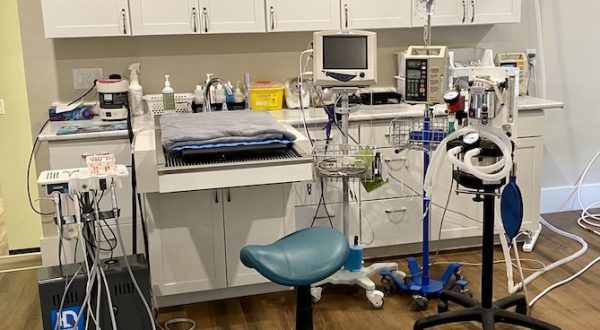Dentistry
Do pets really need dental care?
Yes! Pets, like people, need regular dental care. Studies have shown that greater than 85% of dogs and cats over 3 years of age have some form of dental and or gum disease Imagine not brushing your teeth or having them cleaned for 3 years!
What we offer
Our dental equipment allows us to perform a dental cleaning just as we would receive at our own Dentist’s office. Our high-speed drills and hand pieces allow us to extract abnormal teeth safely and proficiently.
We also offer full-mouth dental radiography which is required to assess the health of the whole tooth. Teeth are like icebergs – only 25% of the tooth is visible above the gingival surface. The other 75% of the tooth is hidden below the gumline, so dental x-rays are needed to assess for bone loss, tooth root fractures, abscesses and root resorption.
We also offer full-mouth dental radiography which is required to assess the health of the whole tooth. Teeth are like icebergs – only 25% of the tooth is visible above the gingival surface. The other 75% of the tooth is hidden below the gumline, so dental x-rays are needed to assess for bone loss, tooth root fractures, abscesses and root resorption.

How Is Dental and Gum Disease Prevented?
Dental and gum disease in cats and dogs can be prevented with routine dental cleanings, regular examinations, and a healthy diet. All of these can significantly improve your pet’s quality of life and extend their longevity.
Unfortunately, there are some factors that contribute to tartar build-up that are beyond our control. These factors are why some pets need more dental care than others. Factors beyond our control include:
- How much a pet chews its food
- How much saliva a pet produces
- The shape, size and placement of the teeth (genetic)
- The type of bacteria in the mouth
What can you do?
There are various veterinary prescription “dental diets” that can help promote dental health and prevent tartar accumulation. Routine cleaning of your pet’s teeth at home with a special toothbrush and enzymatic toothpaste can also be very helpful if done on a regular basis. If necessary, dental prophylaxis or cleaning can be provided by your veterinary care team.
